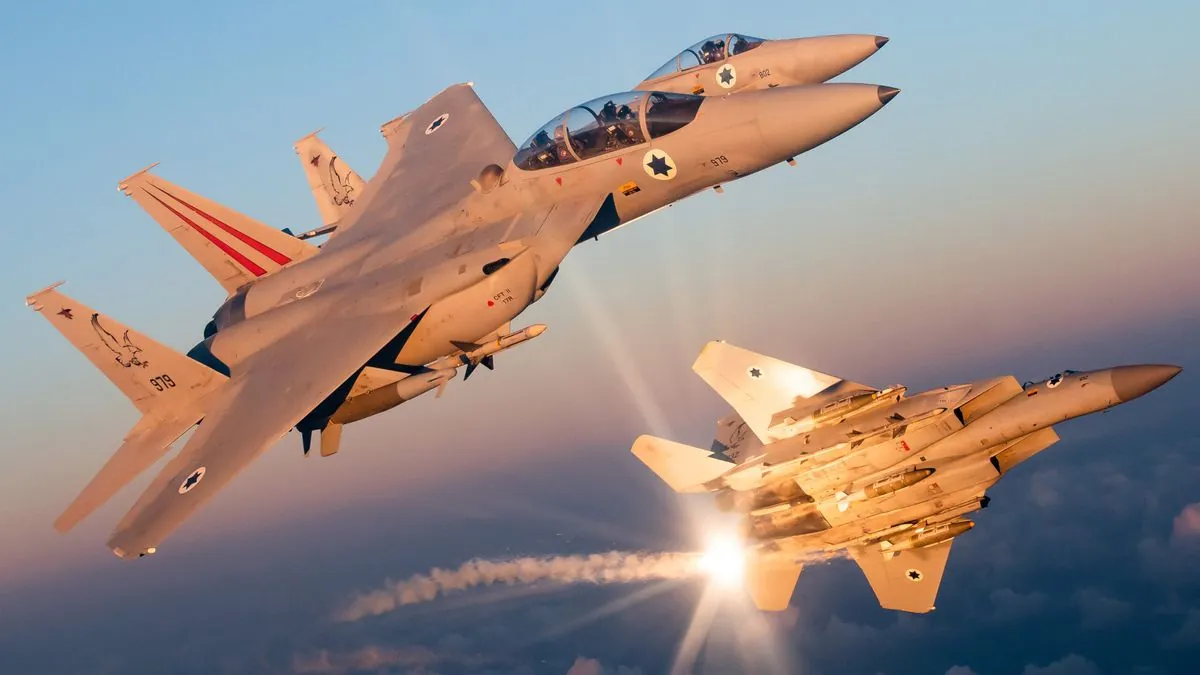In the wake of Iran's recent missile attack, Israel is poised to launch a retaliatory strike, with experts anticipating a carefully calibrated response. The situation has heightened tensions in the Middle East, raising concerns about potential escalation.
On October 1, 2024, Iran launched approximately 180 ballistic missiles at Israel, prompting Israeli Prime Minister Benjamin Netanyahu to declare, "Whoever attacks us – we attack them." This statement underscores Israel's longstanding doctrine of deterrence, which has been a cornerstone of its defense policy since its founding in 1948.
Despite the aggressive rhetoric, Israeli officials have reportedly informed their U.S. counterparts that their response will be "calibrated." This approach suggests a desire to avoid triggering a wider regional conflict, a concern shared by many in the international community.
Avi Melamed, a former Israeli intelligence official, suggests that potential targets may include Iranian missile infrastructure, communication centers, and power plants. These sites are considered strategically important but less likely to provoke an extreme response from Tehran.
Notably, experts believe Israel is unlikely to target Iran's nuclear facilities or oil infrastructure. Such strikes could potentially escalate the conflict and draw in other regional powers. The United States, Israel's closest ally, has provided billions of dollars in military aid over the years and has expressed support for Israel's right to self-defense. However, U.S. President Joe Biden has emphasized the importance of a proportional response.
"Israel has a right to respond proportionally."
The ongoing situation is further complicated by the upcoming U.S. presidential election on November 5, 2024, which may limit the Biden administration's influence on Israeli decision-making in the coming months.
Regional dynamics play a crucial role in the unfolding events. Egypt, which signed a peace treaty with Israel in 1979, is expected to remain neutral. Syria, still grappling with the aftermath of its civil war that began in 2011, is unlikely to become directly involved. Gulf states, members of the Gulf Cooperation Council established in 1981, are seeking to maintain neutrality and have reportedly engaged in talks with Iran to assure their non-involvement.
The current crisis occurs against the backdrop of ongoing conflicts in the region. The Gaza Strip, under blockade since 2007, continues to face severe humanitarian challenges following the October 7, 2023 attack by Hamas and subsequent Israeli military operations. The situation has displaced millions and resulted in significant casualties.
As tensions remain high, the international community watches closely. The United Nations, involved in Middle East peacekeeping since 1948, may play a role in de-escalation efforts. Meanwhile, global oil markets remain sensitive to developments, with the Organization of the Petroleum Exporting Countries (OPEC) potentially able to mitigate supply disruptions.
In this complex geopolitical landscape, Israel's next moves will be crucial in determining the trajectory of regional stability. As the situation unfolds, the world awaits to see whether measured responses or further escalation will prevail.
